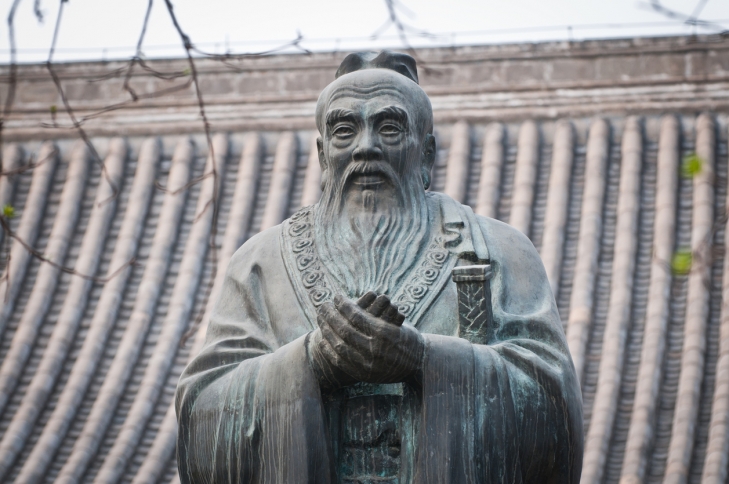
Profits and virtue are not opposites, and businessmen can become gentlemen by observing Confucian values
In Confucianism, the ultimate goal is to be attain virtue (德) and behave virtuously. Key to that goal is observance of the first four basic precepts: humanity (仁), righteousness (义), propriety (礼), and wisdom (智). Scholars are often held up in ancient Chinese society as examples that personify virtue and its individual elements.
Within that context, it is not difficult to understand why entrepreneurs and merchants are easy targets for vilification. Terms such as 奸商 (evil merchant) and idioms such as 见利忘义 (“at the sight of benefits/profits, drop righteousness”) are well-known to ethnic Chinese and those who speak the language, such is the image of businesspeople in ancient China.
Alan Chan, founder of oil tanker company Petroships, is a proponent of the Confucian merchant (儒商). He argues that righteousness and benefits are not necessarily opposing elements.
“I gave it some careful thought and I concluded that righteousness is also a benefit, but it is a long-term benefit,” he explained at a recent SMU School of Social Sciences (SOSS) seminar, “Confucianism and Business Ethics”. Citing a phrase from Confucius’ Analects, Virtue is never lonely, it will attract companionship (德不孤, 必有邻), Chan expanded thus:
“You practice righteousness, people will come to you, they will do business with you and support you. If you get support, then you are likely to succeed and you will gain profits. So, righteousness and benefits can be reconciled.
“Profits are short-term benefits, righteousness is a long-term benefit. They are not in opposition.”
A businessman and a gentleman
Chan, who sold off his business in 2007, elaborated on how Confucian values can be successfully and profitably practiced by entrepreneurs. He brought up two prominent examples of the Confucian businessman: Zigong (子贡), who was one of Confucius’s most famous disciples, and 19th century Japanese industrialist Shibusawa Eiichi.
“On some occasions Shibusawa would carry an abacus…in one hand, and The Analects in the other hand to illustrate the relationship between Confucianism as embodied in The Analects, and business as embodied in an abacus,” Chan related, describing the man often referred to as the “father of Japanese capitalism”. Zigong, on the other hand, was a merchant who came to study under Confucius, and famously later saved his master’s home state from attack (子贡救鲁).
How, then, does a merchant emulate such examples? Should one learn The Analects by heart?
“If you want to cultivate a Confucian mind or personality, you have to internalise the values,” explained Chan. “Gradually they become part of the character. For some people who have got the natural tendency [for Confucian values], it may take some months. For others it could take years.”
Noting that adherence to Confucian ideals leads to a man becoming a gentleman (君子), Chan stressed that such a man should do without the trappings of wealth or success. “It means nobility, it means sublimity,” Chan articulated. “No trappings of a nobleman, none at all. Because 君子 in Confucian terms is all about nobility in the mind, sublimity in style. No trappings, no nice dressing, no good food, nothing like that. That's the Confucian version of 君子.”
He added: “Of course, one has to treat these concepts of Confucianism with a broad mind, with a far sight, with deepened thought. If you want to acquire the spirit, you've got to learn it. Broad, far, and deep, then you've got the true meaning of Confucianism.
Follow us on Twitter (@sgsmuperspectiv) or like us on Facebook (https://www.facebook.com/PerspectivesAtSMU)
Last updated on 31 Jan 2020 .

